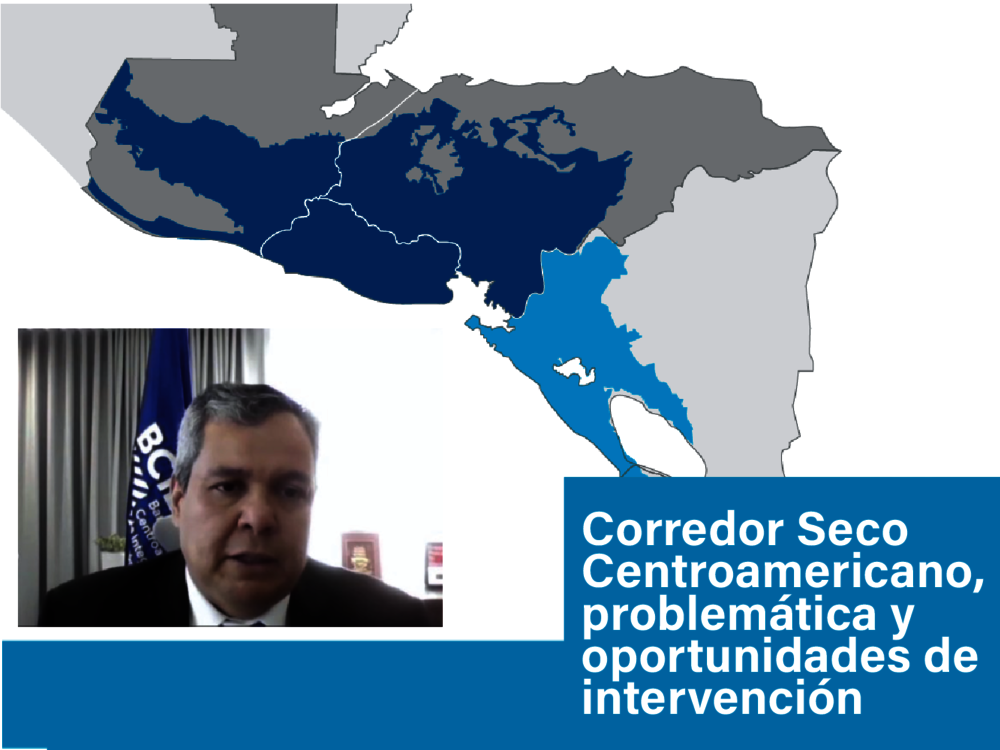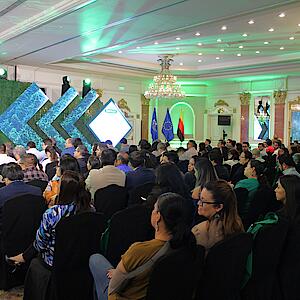At round table, CABEI reaffirms its commitment to promoting a climate change resilient region

Tegucigalpa, February 10, 2022.- In order to support and guide the countries of the region on the roadmap to environmental and social sustainability, the Central American Bank for Economic Integration (CABEI) finances several initiatives and mechanisms to promote and strengthen disaster risk reduction, as well as mitigation and adaptation to climate change.
CABEI's Executive President, Dr. Dante Mossi, explained this Thursday during the virtual panel "Central American Dry Corridor, Problems and Opportunities for Intervention," where he detailed the Bank's role in the preparation and promotion of initiatives with diverse approaches that strengthen people's resilience and contribute to the reduction of greenhouse gas emissions.
One of them is the program "Ecosystem-based Adaptation to Increase Climate Resilience in the Central American Dry Corridor and Arid Zones of the Dominican Republic," which aims to help transform the region's reality by facilitating access to micro-financing for vulnerable communities to adopt adaptation strategies focused on the recovery of ecosystem services that cushion the impacts of climate change.
This regional initiative was designed with technical support from the United Nations Environment Program, and, in October 2021, the Green Climate Fund approved US$268.4 million (US$84.3 million as a grant, for CABEI to implement interventions that increase the adaptive capacity and climate resilience of more than 2.4 million people. CABEI will work with the United Nations Food and Agriculture Organization and the Central American Commission on Environment and Development through the Executive Secretariat and the council of environment ministers of each country in the region to implement the initiative.
CABEI expects that this financing and technical assistance will encourage private sector participation and create an enabling environment for investment and the adoption of large-scale ecosystem-based, water- and energy-efficient technologies, said Mossi.
Currently, eight interventions have been approved in this area, totaling US$746.6 million, of which 63% is earmarked for the northern triangle of the dry corridor.




![[Translate to English:] [Translate to English:]](/fileadmin/_processed_/e/3/csm_WhatsApp_Image_2024-04-18_at_2.12.23_PM__2__590ef43ade.jpeg)
